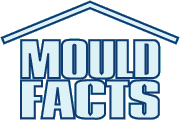Does Mold Contribute to Respiratory Disease and Allergic Reactions?
Does mold contribute to respiratory disease and allergic reactions? The answer is yes. This happens when susceptible individuals inhale excessive amounts of spores and other tiny fragments of mold. Prolonged exposure to mold spores can also elicit sensitivity.
What are mold spores and how do they affect us?
- Mold spores are tiny structures produced by molds for propagation.
- Inhaled spores and mold fragments can cause allergic reactions such as runny nose and eyes, and asthma-like symptoms.
- Prolonged exposure to unusually large numbers of spores and fragments can result in the development of allergic alveolitis.
- Spores of pathogenic fungi if inhaled can infect the respiratory system and the rest of the body.
Generally there are less spores indoors than outdoors. Therefore, unless there is actively growing mold in a home the amount of mold spores present in a home are very unlikely to affect the occupants. However, in industrial environments the concentration of spores can be very high. The types of molds present in industrial environments depend on work carried out and the prevailing conditions.
Which environments are higher risks?
- Mushroom farms,
- Saw mills,
- Paper mills,
- Composting areas,
- Waste disposal sites .
- Demolition sites,
- Agricultural environments, e.g., animal farms.



0 Comments:
Post a Comment
<< Home